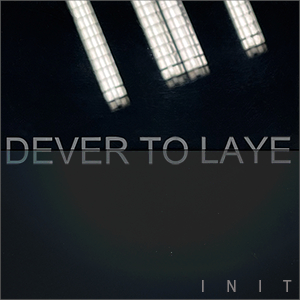Sometimes the constant listener might be passing right through the lines between ambient-electronica and post-rock, with layers of shimmering synths and gone distant ethereal guitars.
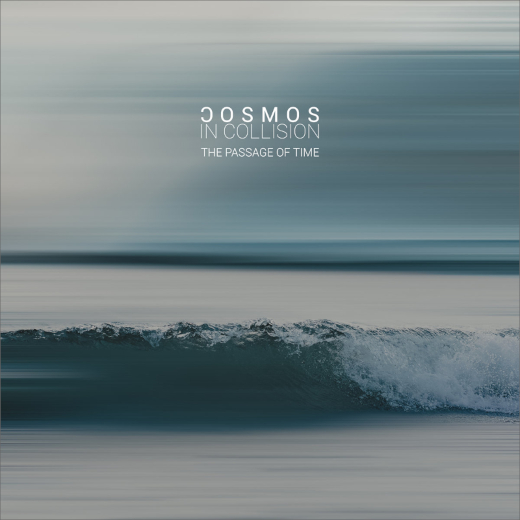
Soaring and flying atmospherics
Cosmos in Collision is probably not prog-rock nor EDM, the sound to me is more of an exotic DAW form of cinematic rock. The beat is cookin’ and the tonality is perfect, the execution is soulful and the overall sound has some of the sweet sequencer boogie in the mix. Italian musician and producer Riccardo Spaggiari has a new project, The Passage of Time, exploring all-electronic instrumental soundtracks for movies in your head. These are perfect beats for the steady life force. Time has long been an important subject of study in religion, philosophy, and science, metrics and duration have always been a facet of music. Cosmos In Collision brings hints of space and steadily persistent electronic beats, and keyboards. To me these titles are like cinematic soundtracks for certain moments that sometimes appear one day, there is prominent electronic percussion, plenty of harmonic boogie in an cyber-friendly way. I want more guitars but that is just selfish of me. I hear interlocking weaving patterns that mesh and just run on and on forever, soaring and flying atmospherics. Sometimes the constant listener might be passing right through the lines between ambient-electronica and post-rock, with layers of shimmering synths and gone distant ethereal guitars.
Here is where The Passage of Time starts. This is a vehicle and we are flying. The music takes you into the beat. Imagine first, time travel. The beat comes in and keys are sifting and searching, feet are tapping and going up the stairs. “Chronos” (7:49) is where the cycles are unfolding to reveal the path ascending, we are seeing all the events flickering along, they become a blur, but there are moments that stand out, and I am always running up the stairs, passing floating things and traveling a long ways to find out what happens next. A bowed glowing buzz, the weather might be expressed by some wind sounds. Here the keyboards weave and climb forever above the sky by the sea. Now I think that this vehicle goes vertically, straight up, to a beat. I feel the suspended wonderment, then another beat takes over and another level opens up. I can hear the water dashing upon the rocks, the tones are tracing the large slow circles that turn and turn. Things weave and flow, mostly this is a tight beat, over and over into infinity. “Kairos” (7:20).
The next track feels to me more loose and wider, more open. “Aion” (7:14) was the name of an ancient Greek time deity, the sound is perpetually unbounded and cyclic, a long soaring cruise through the cosmos. The beat is restless and constant, fidgeting and rolling along with many little steps into an infinite hall of mirrors. I hear wonderful little voices flickering and just barely audible, The complex mathematical beat creates some huge spiraling vistas filtering down to an essence that lingers. Until here we go, another time, now with guitar strings touched by fingers, “Everything Is Relative” (6:47) these are intricate beats that keep things lively, nothing colliding or exploding, just soaring for long distances at an enjoyable boogie pace, starting with a melodic premise and then taking it where it wants to go, or letting it go where it takes you. The pattern takes on a new form and that beat carries us to new elevations. As I am riding along I hear the echoes of other travels, a new electronic voice starts and we are immersed in riding within that new old theme now. The same pace continues at a smart clip, focused and constant, and the ultimate electric guitar burns some long notes as the cycles turn and the patterns mesh. With great satisfaction, the ending has some surprises baked into the pattern.
Perpetually unbounded and cyclic ::
Drones can mean holding just a few notes for a long time. Here, the beat is also holding the melody close and they fit together. I think we are in a new hypnotic place – yes, now the song has transformed. The beat holds the melody all the way through. “Simultaneity” (6:38) moves through an endless hall-of-mirrors atmosphere, without the glass. The beat is cosmic, nothing specifically terrestrial but with lots of soul. Now I think that some of the past electric guitars must have been my own personal hallucinations. The whole thing doubles back from time to time, sizzling and tshing while the keyboards circle around and around doing all the work. Those one-of-a-kind drones just keep soaring way off up there, sometimes adding a traveling sensation and taking the constant listener flying in the night sky.
Now for the easing into the light. I am floating until the beat slowly emerges now that the bass has taken hold, this is “The Age Of The Universe” (6:15). I will sometimes tell you that the chronology of the universe is hard to judge and that there is quite a bit to consider. Just how do you measure time when each of the home planets have different lengths of orbits? Some out there have never heard of Earth. Clearly this is a long journey. As of the time I am writing, the universe seems to still be here. Perhaps getting the correct age of the universe seems like an abstract concept, or maybe it might require no precision, just a quick “there we were” and suddenly the cosmic wheels turn and the time machine takes us to new places knowing that there is no way back. This feels like taking, or riding, the sequencer boogie on down the road to forever. We are back in the infinite hall of mirrors where the melodies cycle along steadily, somehow sustained. Now the next melody is emerging, the tempo is moderate at about the pace of a heartbeat. I hear a human and a synthesizer, a triumph, a classic in cinematic sequencer boogie astronomy.
“This is kinetic music that you can lie down and dream of moving about to, or you can activate yourself, go running around keeping an open, steady way forward. What I hear are energizing percussion jams with psychedelic keyboards, a distinct steady sequencer boogie for all of your action preludes.” ~Robin James
Since 2016 Cosmos in Collision, aka Riccardo Spaggiari, has released music with labels like Shore Dive Records and En:peg Digital. The Passage of Time is his latest release and label debut on Sun Sea Sky.
The Passage Of Time is available on Sun Sea Sky. [Bandcamp | Site]












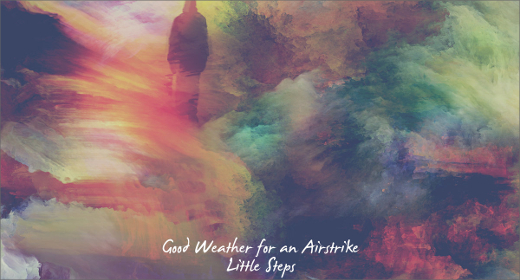
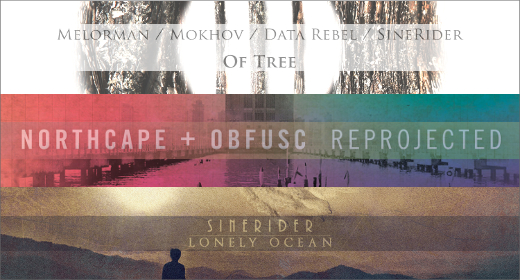
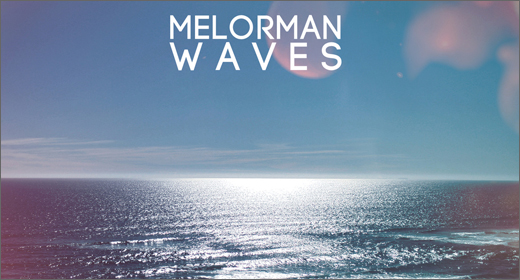

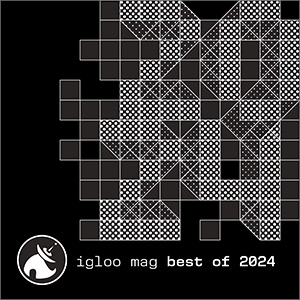




![ALEPH :: REFRACTOR EP (Renraku) — [concise]](https://igloomag.com/wp/wp-content/uploads/2025/03/alpeh-refractor_feat-75x75.jpg)
![ADJ :: Invasion Of The Compliant (Strange But Dance Music) — [concise]](https://igloomag.com/wp/wp-content/uploads/2025/03/adj-invasion-of-the-compliant_feat-75x75.jpg)



